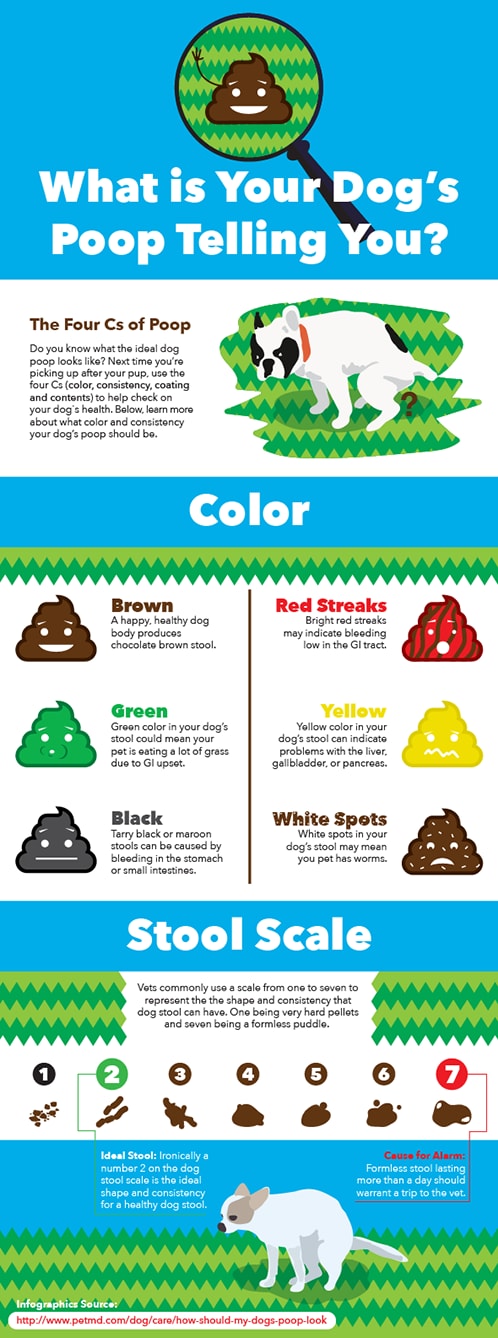My chihuahua’s frequent episodes of diarrhea left me puzzled and concerned. It turns out that these tiny dogs are prone to experiencing digestive issues more often compared to other breeds.
There are several possible reasons why my chihuahua has diarrhea. One common cause is a sudden change in diet or the consumption of spoiled food. Due to their sensitive stomachs, chihuahuas are more susceptible to gastrointestinal upset. Another factor could be stress or anxiety, which can disrupt their digestive system. It is vital to consult a veterinarian to determine the specific cause and provide the necessary treatment for my chihuahua’s diarrhea.
If your chihuahua is experiencing diarrhea, it’s important to address the issue promptly. There are several possible reasons for this discomfort, including dietary changes, food allergies, infections, or parasites. Consult your veterinarian to determine the underlying cause and receive appropriate treatment. It’s important to keep your chihuahua hydrated and provide a bland diet until the diarrhea resolves. Remember to always seek professional veterinary advice for your furry friend’s health concerns.

Why Does My Chihuahua Have Diarrhea?
Chihuahuas are small and charismatic dogs that hold a special place in many people’s hearts. However, like any other breed, they are not exempt from health issues. One common problem that Chihuahua owners may encounter is diarrhea. If you’ve ever wondered, “Why does my Chihuahua have diarrhea?” you’re not alone. In this article, we’ll explore the various reasons why your Chihuahua might be experiencing diarrhea, as well as provide helpful tips on how to manage and prevent it.
1. Dietary Changes and Food Sensitivities
Diet plays a crucial role in a dog’s overall health, and Chihuahuas are no exception. Abrupt changes in their diet can lead to digestive upsets, resulting in diarrhea. If you recently switched your Chihuahua’s food or introduced new treats, it’s possible that their digestive system is struggling to adjust. Additionally, some Chihuahuas may have food sensitivities or allergies, causing diarrhea when they consume certain ingredients. Common culprits include lactose, grains, and high-fat foods.
To address dietary issues, it’s important to transition your Chihuahua to a new food gradually. Mix a small amount of the new food with their current diet, increasing the proportion over a week or two. If diarrhea persists or you suspect a food sensitivity, consult your veterinarian, who may recommend an elimination diet or suggest hypoallergenic dog food.
2. Intestinal Parasites and Infections
Parasites and infections can wreak havoc on your Chihuahua’s digestive system, leading to diarrhea. Internal parasites, such as roundworms, hookworms, and giardia, can cause persistent bowel issues. Infections, such as bacterial or viral gastroenteritis, are also common causes of diarrhea. These conditions can be transmitted through contaminated food, water, or contact with infected animals.
If your Chihuahua’s diarrhea is accompanied by other symptoms like vomiting, lethargy, or loss of appetite, it’s important to have them examined by a veterinarian. They will likely perform tests to detect parasites or infections and prescribe appropriate medication to treat the underlying cause. Preventative measures, such as regular deworming and vaccinations, can also help reduce the risk of diarrhea caused by parasites or infections.
3. Stress and Anxiety
Chihuahuas are known for their big personalities, but they can also be prone to anxiety and stress. Changes in their environment, such as moving to a new home, the addition of a new family member, or loud noises, can trigger stress-induced diarrhea. Additionally, separation anxiety when left alone for extended periods can contribute to digestive issues.
To help alleviate stress-related diarrhea, create a calm and secure environment for your Chihuahua. Provide them with a safe space, ensure they have plenty of exercise and mental stimulation, and consider using calming aids such as pheromone diffusers or anxiety wraps. If the stress persists or worsens, consult with a professional dog trainer or veterinarian for further guidance.
4. Ingestion of Toxic Substances
Chihuahuas have a knack for getting into things they shouldn’t. Their small size and curious nature make them more susceptible to accidental ingestion of toxic substances. Common household items, such as cleaning products, medications, plants (like lilies or ivy), and certain human foods (like chocolate, caffeine, or grapes), can cause diarrhea and other gastrointestinal problems if ingested by a Chihuahua.
Ensure your home is Chihuahua-proofed by keeping hazardous substances out of their reach. Familiarize yourself with a list of toxic substances for dogs and be cautious when your Chihuahua is exploring new areas, especially outdoors. If you suspect your Chihuahua has ingested something toxic, contact your veterinarian immediately or call the Animal Poison Control Center for guidance.
5. Irritable Bowel Syndrome (IBS) and Inflammatory Bowel Disease (IBD)
In some cases, Chihuahuas may have underlying gastrointestinal conditions that contribute to chronic or recurrent diarrhea. Irritable Bowel Syndrome (IBS) and Inflammatory Bowel Disease (IBD) are two such conditions. IBS is characterized by hypersensitivity and abnormal contractions of the intestinal muscles, while IBD involves chronic inflammation of the digestive tract.
If your Chihuahua’s diarrhea is persistent, accompanied by weight loss, vomiting, or blood in the stool, it’s important to consult a veterinarian. They will likely perform diagnostic tests, such as blood work, fecal examinations, or even a biopsy, to determine if IBS or IBD is the root cause. Treatment options may include dietary changes, medication, and ongoing monitoring to manage the condition effectively.
6. Canine Parvovirus
Canine Parvovirus is a highly contagious viral infection that primarily affects puppies but can also affect adult dogs, including Chihuahuas. The virus attacks the cells lining the intestines, causing severe diarrhea, vomiting, dehydration, and potentially life-threatening complications. Puppies with Parvovirus require immediate veterinary attention and specialized treatment to improve their chances of survival.
Vaccination is crucial in preventing Parvovirus infection. Ensure your Chihuahua receives the appropriate vaccinations on schedule, starting from when they are young puppies. Avoid exposing them to potentially contaminated areas or interacting with dogs whose vaccination status is unknown. If you suspect your Chihuahua has been exposed to Parvovirus, contact your veterinarian immediately.
7. Other Possible Causes
While the above reasons cover some of the common causes of diarrhea in Chihuahuas, there are additional factors that could contribute to this issue. These include pancreatic disorders, certain medications, reactions to treatments such as antibiotics, or even underlying diseases like diabetes or kidney disease. It’s important to work closely with your veterinarian to determine the exact cause of your Chihuahua’s diarrhea and develop an appropriate treatment plan.
In conclusion, diarrhea in Chihuahuas can be caused by various factors, including dietary changes, food sensitivities, parasites, infections, stress, ingestion of toxic substances, gastrointestinal conditions, and viral infections such as Parvovirus. Understanding the potential causes and seeking veterinary care when necessary is crucial for effectively managing and preventing diarrhea in your beloved Chihuahua. By providing a balanced diet, a stress-free environment, regular veterinary care, and taking preventive measures, you can help keep your Chihuahua happy, healthy, and free from digestive troubles.
“Why does my Chihuahua have diarrhea?” – Key Takeaways
- Diarrhea in Chihuahuas can be caused by various factors, including diet changes, food allergies, or gastrointestinal infections.
- It is important to monitor your Chihuahua’s diet and ensure they are not consuming any harmful substances that could lead to diarrhea.
- Consulting with a veterinarian is crucial in determining the underlying cause of your Chihuahua’s diarrhea and getting proper treatment.
- Dehydration can be a significant concern when your Chihuahua has diarrhea, so it’s essential to make sure they stay hydrated.
- Preventing diarrhea in Chihuahuas involves maintaining a balanced diet, avoiding sudden changes in food, and providing regular veterinary care.
Frequently Asked Questions
1. What are some common causes of diarrhea in chihuahuas?
Chihuahuas may experience diarrhea for a variety of reasons. It could be due to a sudden change in diet, food allergies or intolerances, eating something inappropriate or spoiled, or a gastrointestinal infection. Stress and anxiety can also contribute to diarrhea in chihuahuas.
In some cases, certain medical conditions such as pancreatitis, kidney disease, or inflammatory bowel disease may be the underlying cause of diarrhea. It’s important to consult with your veterinarian to determine the specific cause and develop an appropriate treatment plan.
2. How can I manage my chihuahua’s diarrhea at home?
When your chihuahua has diarrhea, it’s crucial to ensure they stay hydrated. Offer them plenty of fresh water to drink, and you can also try giving them Pedialyte or a homemade electrolyte solution to replenish lost fluids and electrolytes. However, if your chihuahua is vomiting or showing signs of dehydration, it’s best to seek veterinary care.
Feeding a bland diet consisting of boiled chicken and rice can also help soothe your chihuahua’s upset stomach. Make sure to divide their meals into smaller portions and gradually reintroduce their regular diet once the diarrhea resolves. To help restore the balance of beneficial gut bacteria, your veterinarian may recommend probiotics for your chihuahua.
3. Is it necessary to take my chihuahua to the vet for diarrhea?
While mild cases of diarrhea may resolve on their own with proper home care, it’s still advisable to consult with your veterinarian if your chihuahua’s diarrhea persists for more than 24 hours, is accompanied by other concerning symptoms, or if it’s severe or bloody.
Your veterinarian will be able to assess your chihuahua’s overall health, identify any underlying causes, and provide appropriate treatment. They may also want to run additional tests, such as fecal examinations or blood work, to rule out underlying medical conditions.
4. How can I prevent diarrhea in my chihuahua?
To help prevent diarrhea in your chihuahua, it’s important to maintain a consistent and balanced diet. Avoid making sudden changes to their food and introduce any new diet gradually over several days. Choose high-quality dog food that suits your chihuahua’s nutritional needs and take care to avoid giving them table scraps or foods that are known to trigger gastrointestinal upset.
Regular exercise and minimizing stress in your chihuahua’s environment can also contribute to their overall gastrointestinal health. Keep their living space clean and ensure they are up to date on vaccinations and parasite prevention. Remember to consult with your veterinarian for specific preventative measures based on your chihuahua’s individual needs.
5. Are there any over-the-counter remedies I can give my chihuahua for diarrhea?
It’s important to consult with your veterinarian before giving any over-the-counter remedies to your chihuahua for diarrhea. While there are some products available, such as probiotics or anti-diarrheal medications, not all of them may be suitable for chihuahuas or may interact with any underlying health conditions or medications your chihuahua is taking.
Your veterinarian will be able to recommend the most appropriate course of action based on their assessment of your chihuahua’s condition. They may suggest specific medications or supplements to help manage the diarrhea and promote gastrointestinal health. It’s always best to err on the side of caution and seek professional guidance when it comes to your chihuahua’s health.

Overall, it is crucial to strike a balance between professionalism and accessibility in our writing. This helps us effectively communicate our message to a wide range of readers, including younger audiences. By following these guidelines, we can ensure that our content is both informative and engaging, connecting with readers and leaving a lasting impact.
